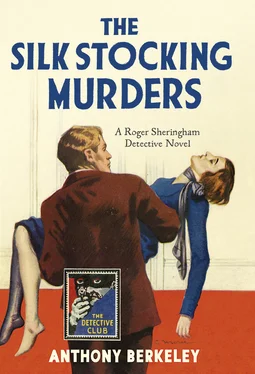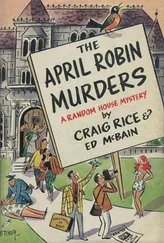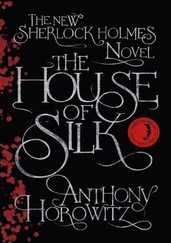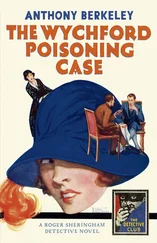‘Yes,’ said Roger, his thoughts on the letter he would have to write to Dorset if all this were true.
‘And now I come to think of it, I seem to remember something rather queer about the case. It was ordinary enough in most ways, but I believe they had some difficulty in identifying the girl. No relatives came forward, or something like that.’
‘Oh?’
‘ The Picture didn’t pay much attention to it, beyond publishing her photo; rather out of our line, of course. But I expect The Courier had a report of the inquest. Anyhow, don’t take it for certain that I’m right; it’s quite possible that I’m not. Go down and look up the files.’
‘Yes,’ said Roger glumly, turning on his heel.
‘I will.’
CHAPTER II
MR SHERINGHAM WONDERS
ACUTELY disappointed, and not a little shocked, Roger made his way downstairs. His thoughts were centred mainly upon that pathetic household in Dorsetshire, to whom his letter must bring such tragedy; but Roger, like most of us, while able to feel for other people strongly enough, was at heart an egoist, and it was this side of his nature which prompted the sensation of disappointment of which he was conscious. It was, he could not help feeling, most unfortunate that just when his help had been solicited as that of an able criminologist, the problem should be whisked out of his hands in this uncompromising way.
The truth was that Roger had been longing for an opportunity to put his detective capabilities into action once more. The letter had acted as a spur to his desires, coming as it did from one who evidently held the greatest respect for his powers in this direction. Roger himself had the greatest respect for his detective powers; but he could not disguise from himself the fact that others were obtuse enough to hold dissimilar views. Inspector Moresby, for instance. For the last nine months, ever since they had parted at Ludmouth after the Vane case, Inspector Moresby had rankled in Roger’s mind to a very considerable extent.
And those nine months had been, from the criminologist’s point of view, deadly dull ones. Not an interesting murder had been committed, not even an actress had been deprived of her jewels. Without going so far as to question whether his detective powers might be getting actually rusty, Roger had been very, very anxiously seeking an opportunity to put them into action once more. And now that the chance had come, it had as swiftly disappeared.
He began gloomily to turn back the pages of The Daily Picture file.
It was not long before he found what he wanted. In an issue of just over five weeks ago there was, tucked neatly into a corner of the back page, a portrait of a young girl; the heading above it stated curtly: ‘Hanged Herself With Own Silk Stocking’. The letterpress below was hardly less brief. ‘Miss Unity Ransome, stated to be an actress, who hanged herself with her own silk stocking at her flat in Sutherland Avenue last Tuesday.’
Roger pored over the picture. Like amateur snapshots, the pictures in an illustrated paper are considered fair game for the humorist. Whenever a painstaking humorist has to mention them he prefixes one of two epithets, ‘blurred’ or ‘smudgy’. Yet the pictures in the illustrated dailies of today are neither blurred nor smudgy. They were once, it is true, perhaps so late as ten years ago, when the art of picture-printing for daily newspapers was an infant; nowadays they are astonishingly clear. One does wish sometimes that even humorists would move with the times. Roger had no difficulty in deciding that the two faces before him were of the same girl.
He turned to The Daily Courier of the same date.
There he found, unobtrusive on a page lined with advertisements, a laconic account of the inquest. Miss Unity Ransome, it seemed, had been a chorus-girl in one of the less important London revues. There was evidence that this was her first engagement on the stage, and she had obtained it, in spite of her inexperience, on the strength of her good looks and air of happy vivacity. Prior to this engagement, nothing was known about her. She shared a tiny flat in Sutherland Avenue with another girl in the same company, but they had met at the theatre for the first time. This girl, Moira Carruthers, had testified that she knew less than nothing about her friend’s antecedents. Unity Ransome not only volunteered no information concerning herself, but actively discouraged questions on that subject. ‘A regular oyster,’ was Miss Carruthers’ happy description.
This reticence the coroner had not been unwilling to emphasise, for on the face of it there appeared no reason for suicide. Miss Carruthers had stated emphatically that, so far as she knew, Unity had never contemplated such a thing. She had appeared to be perfectly happy, and even delighted at having obtained an engagement in London. Her salary, though not large, had quite sufficed for her needs. Pressed on this point, Miss Carruthers had admitted that her friend had more than once expressed a wish that she had been able to earn more, and that quickly; but, as Miss Carruthers pointed out, ‘Unity was what you might call a real lady, and perhaps she’d been accustomed to having things a bit better style than most of us.’ At all events, she had not complained unduly.
The police had made perfunctory efforts to trace her, Roger gathered, and attempts had been made, besides the publication of her professional portrait, to get into touch with any former friends or relations, but without success. To this also the Coroner called attention. In his concluding remarks, he hinted very delicately that the probability seemed to be that she had quarrelled with her family, left home (but not necessarily in disgrace, the Coroner was careful to add with emphasis, thereby showing quite plainly that this was precisely what he thought), and endeavoured to make a career for herself on the stage; and though she might appear to have met with unexpected success in this direction, who could say what remorse and unhappiness might not burden the life of a young girl cut off thus from all the comforts to which, it would seem, she had been accustomed? Or, again, she might have been an orphan, left penniless, and overcome by a loneliness which she felt, rightly or wrongly, to be unbearable. In other words, the Coroner was extremely sorry for the girl, but he wanted to get home to his lunch and the usual straightforward verdict was the best way of doing so.
He got his wish. Indeed, there was little likelihood of anything else, for Unity Ransome had simplified matters by leaving a little note behind her. The note ran briefly as follows: ‘I am sick and tired of it all, and going to end it the only way.’ It was not signed, but there was plenty of evidence that it was in her writing. A verdict of ‘Suicide during Temporary Insanity’ was inevitable.
Quite illegally Roger cut the little paragraph out of the file and put it away in his pocket-book. Then he went upstairs again and sought out the news-editor, with whom he usually lunched.
For some reason Roger did not say anything to the news-editor about his activities of the morning. News-editors, though excellent people in private life and devoted to their wives, are conscienceless, unfeeling bandits when it comes to news. Roger’s reticence was instinctive, but had he troubled to search for its cause he would certainly have found it in the fact that the Dorsetshire Vicarage would have enough to bear during the next few days without a pitiless and lurid publicity being added to the sum of their troubles. That, at any rate, he could spare them.
It was still with the secret of Unity Ransome’s identity undisclosed, then, that he returned later to The Courier’s offices and, having obtained from the bespectacled one a copy of the photograph which had appeared in The Daily Picture, prepared to write to Mr Manners and ask him, as gently as possible, whether he recognised his daughter in the portrait of the girl who had committed suicide in the Sutherland Avenue flat.
Читать дальше












